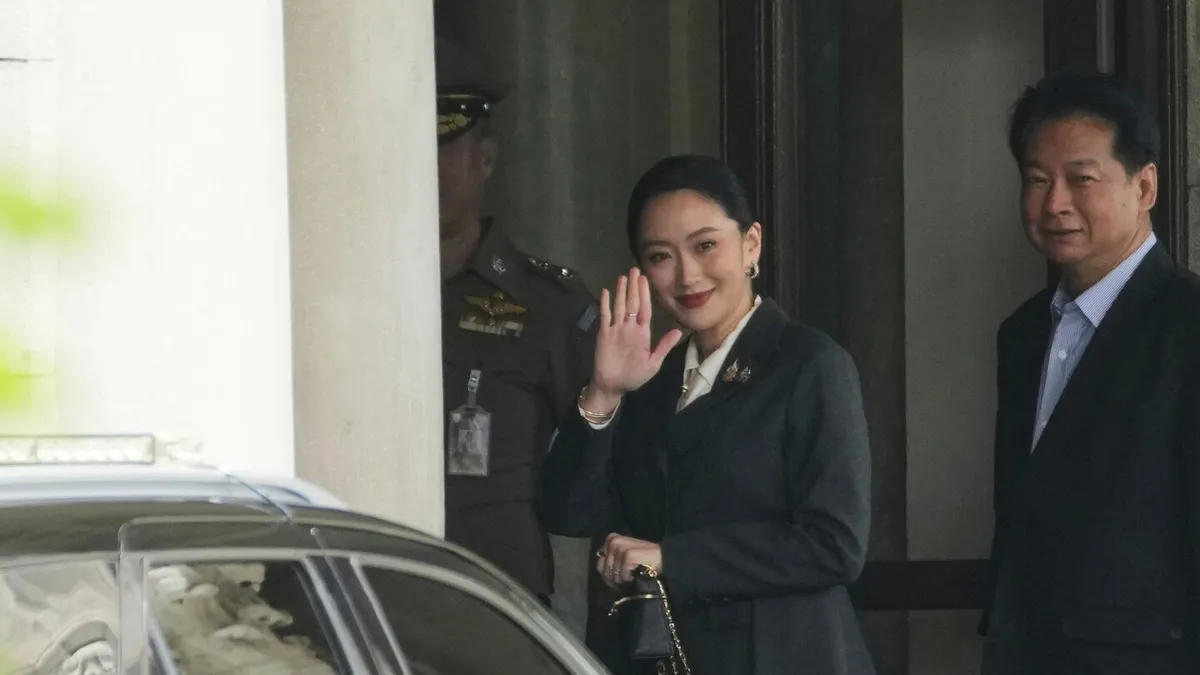
BANGKOK (AP) — In a significant political upheaval, Thailand’s Constitutional Court ruled on Friday to dismiss Paetongtarn Shinawatra from her position as prime minister. The court determined that she had violated constitutional ethics during a controversial phone call with Cambodia’s Senate President Hun Sen. This ruling results in her immediate removal from office, a position she had held for approximately one year.
Paetongtarn was previously suspended from her duties on July 1, after the court agreed to hear the case against her. During her suspension, Deputy Prime Minister Phumtham Wechayachai stepped in to oversee her responsibilities. The legal proceedings stemmed from a leaked phone call on June 15, where Paetongtarn and Hun Sen discussed efforts to ease tensions over competing territorial claims along the Thai-Cambodian border.
The leaked audio of the phone call incited significant backlash in Thailand. Many citizens were outraged by Paetongtarn's perceived friendliness while discussing sensitive national security issues, particularly as she appeared to criticize a Thai army general during the conversation. The leak was made public by Hun Sen, who held the position of Cambodia’s prime minister for 38 years until his son, Hun Manet, took over in 2023.
This contentious phone call occurred against a backdrop of heightened tensions between Thailand and Cambodia, following the death of a Cambodian soldier in May during a brief skirmish in disputed territory. The situation escalated in late June when the two nations were involved in five days of combat, resulting in the deaths of dozens and displacing over 260,000 people.
The court's ruling significantly destabilizes the ruling coalition led by Paetongtarn's Pheu Thai party. Following the controversy surrounding the phone call, the Bhumjaithai Party, the largest partner in the coalition, withdrew its support, reducing the coalition's majority in the House of Representatives.
This ruling is also a considerable setback for the political influence of Paetongtarn's father, former Prime Minister Thaksin Shinawatra. Ousted from power in a military coup in 2006, Thaksin has maintained a significant presence in Thai politics through support for proxy parties like Pheu Thai. His political legacy is rooted in the populist policies he championed and the substantial fortune he amassed in the telecommunications industry.
As Thailand navigates this political crisis, the implications of the court's ruling and the shake-up within the ruling coalition will be closely monitored by citizens and political analysts alike.